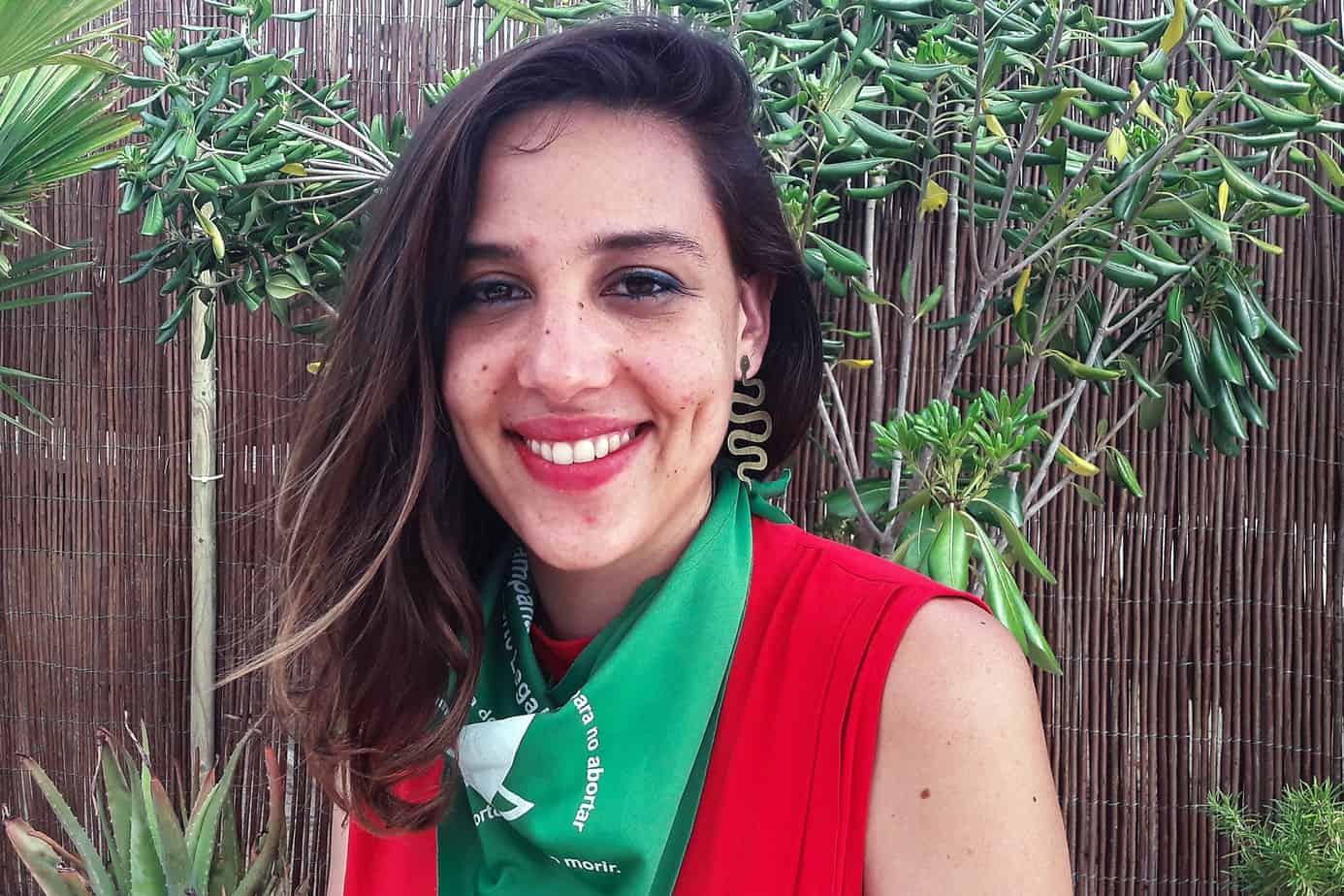 Argentinian-Costa Rican director Sofia Quiros poses wearing the scarf of the Argentinian pro-choice movement during a photocall for her film "Ceniza Negra" at the 72nd edition of the Cannes Film Festival in Cannes, southern France, on May 19, 2019. (Photo by Esther SANCHEZ / AFP)
Argentinian-Costa Rican director Sofia Quiros poses wearing the scarf of the Argentinian pro-choice movement during a photocall for her film "Ceniza Negra" at the 72nd edition of the Cannes Film Festival in Cannes, southern France, on May 19, 2019. (Photo by Esther SANCHEZ / AFP)With a tale about the struggles of a teenager, in which death is like a “game,” the director Sofía Quirós presented on Sunday in Cannes the first feature film from Costa Rica in the history of the contest.
“Ceniza Negra,” or “Black Ash,” Quirós’ first feature, tells the story of Selva, a dreamy teenager who lives with her grandfather and her companion in a small Caribbean town. Surrounded by nature, she learns to overcome the death of her mother.
Scheduled in the Critics’ Week, the film is the first feature film from Costa Rica projected in the biggest film event in the world. In 2017, Quirós presented a short film, “Selva,” in this section, becoming the first edition of the contest with a Costa Rican presence.“That we are the first film of Costa Rica in Cannes and that the way we have done it is so honest with what we think is a double prize, for the Costa Rican cinema and the independent Latin American cinema,” Quirós told AFP.
The filmmaker began to think about the subject of death watching a 5-year-old cousin who lost her mother.
“I started to marvel at the naturalness of children, they understand death as a natural process,” said Quirós, a Costa Rican and Argentine national.
“Death became a kind of game. She played in cemeteries, to bury things. … She understood death from the game and from a more playful and natural place”.From there, she built the character of Selva, keeping in mind that for “children and adolescents, death can be a magical and healing experience.”
To overcome the death of her mother, the girl, played by a magnetic Smachleen Gutiérrez, is immersed in a universe populated with magical elements, like her friend Winter, with whom she performs enigmatic rituals.
The starting point to recreate this magical world was the “symbol of the serpent,” which changes skin, and reinforces the idea that children see death as “a natural process of transformation, where we are born, we die, we become something more, in another energy,” reiterated the filmmaker.
[h=2]– A film that is ‘100% feminine’ –[/h] Shot in the province of Limón, the exuberant nature of this Caribbean area also plays an important role in the learning of Selva.
Through the natural elements, the director sought to show the “evolution of the character in this duel through nature and how this pain goes, this courage, which is assumed throughout the film through the force of nature, from the sea.”
The young singer Smachleen Gutiérrez had already starred in the short film “Selva” in 2017, and since then, she has been working with Quirós to maintain a playful and natural side in her performance, and to create a figure “more from childhood than from adolescence.”The fact that the film’s team was mostly female had an influence on the creation of the character.
The construction of the strength of the character and the female empowerment of the story has to do with the fact that the genesis of the project was “100% female,” says the director.
With regard to this female presence, Quirós believes that emerging Costa Rican cinema “has a particularity, and that it has many women’s films and many women producers” and, although there are also male directors and producers, “the most authentic, most authoritative, most risk-taking stories are being led by women.”





